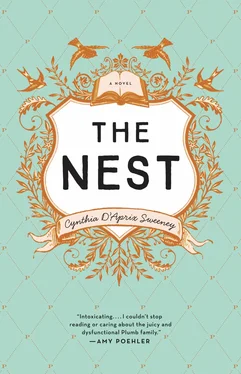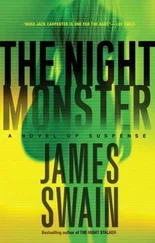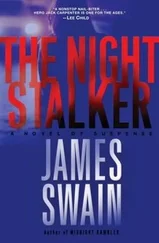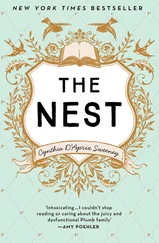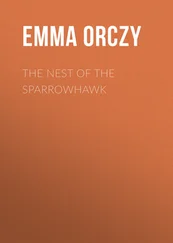As he headed toward the far edge of Fulton Ferry Landing, Paul saw Leo Plumb’s familiar figure sitting on one of the benches closest to the water. Leo and Paul had taken to walking together every so often. Leo looked up and waved. Paul picked up his pace. He’d actually begun to look forward to the days when Leo would join him at the bench. Stranger things had happened, he supposed.
PAUL HAD BEEN LIVIDwhen SpeakEasy magazine folded and Leo hadn’t invited him to help start the website that would eventually grow into SpeakEasyMedia. Leo hadn’t taken everyone from the print magazine, but he’d taken those generally considered the sharpest, the most desirable, and Paul had always believed himself to fit squarely in that category. Maybe he wasn’t the most talented writer, the most fearless reporter, but he was reliable and capable and ambitious and shouldn’t all those things count for something? He met deadlines, his copy was pristine, and he pitched in where needed even when it wasn’t his responsibility. He did everything you were supposed to do to earn the things you wanted. He was nice .
That no one else was surprised Paul wasn’t going with Leo was also a blow. He kept waiting for the shocked looks, the crooked finger beckoning him behind a closed door, “Leo isn’t taking you ?” When it didn’t happen, he realized nobody else considered him prime pickings either.
He’d mustered the nerve to ask Leo about it once. “Underwood, this is not going to be your scene,” Leo’d said, putting a heavy palm on Paul’s shoulder and holding his gaze in that way Leo had, the way that made you simultaneously flattered to command his full attention and slightly brain addled, unable to capture a train of thought. “You would hate it. You’re an in-depth feature guy. I wouldn’t do it to you. And I’m paying peanuts.”
Paul comforted himself with Leo’s explanation for a while. He probably would hate gossip; it was true that Paul specialized in the longer cultural pieces. And he wasn’t willing to work for nothing. But then Paul discovered that Leo had hired Gordon FitzGerald as content editor at the new SpeakEasy. Gordon wasn’t any more interested in short form or gossip than Paul, and he was sure Gordon wasn’t working for peanuts. Paul had supervised Gordon — he’d recruited him! — and he knew that Gordon was nothing but trouble, a drunk and a world-class dick. For months after Leo left, Paul freely offered his opinion of the new venture: “Dead in the water in six months.” He had, of course, been preposterously wrong.
Paul didn’t know what had happened to land Leo in rehab because the public details were sketchy and Bea was closemouthed. He’d heard rumors about a car accident out in the Hamptons. Leo’s wife, Victoria, had been seen around town with a number of high-profile dates. Leo seemed to be shacking up ( again ) with Stephanie Palmer in Brooklyn. His Porsche was gone.
When Leo appeared in his offices one morning in November ostensibly looking for Bea, Paul didn’t think anything of it. But Leo was there for hours, nosing around Paul’s office, asking questions about issue scheduling, advertising deadlines, print sales, subscriptions, finances. He wanted to know about the magazine’s online presence (slim), writer relationships (robust), and how Paul would expand if he could—“If you had all the funding you wanted?”
And then Paul thought he understood. “Nathan sent you here,” Paul said. “You two are working together again.” It made sense; they used to be partners and Paul thought his recent meeting with Nathan had been promising. Leo held Paul’s gaze in a way that seemed significant and said, “Officially? No. Officially? This is just a friendly visit.”
“I see,” Paul said. He didn’t see but hoped to God that Leo was there on unofficial-official Nathan business. At one of the countless holiday parties he’d attended in December — he couldn’t even remember which one, they all blurred, all the cheap Prosecco and waxy cubes of cheese and gluten-free cupcakes — one of his old SpeakEasy colleagues mentioned that he’d heard Nathan was thinking about starting a literary magazine — or investing in one.
“As a write-off?” Paul asked, unable to imagine any other reason.
“I think it’s more of an ego thing,” his friend had said. “Something respectable and highbrow to balance the other stuff.” The other stuff, Paul knew, referred not just to the gossipy lowbrow nature of SpeakEasyMedia’s online presence, but to the soft-core porn site that generated most of the company’s revenue.
“Any idea who he’s considering?”
“None. You should call him. The money he’s willing to throw at someone is chump change for him but probably massive by your standards.”
Paul had been on the phone scheduling a meeting the next day. Keeping Paper Fibres afloat sometimes felt like trying to cross the Atlantic Ocean in a leaky skiff. He was constantly plugging one hole, just to have another appear and then another and he felt like the whole venture was going to sink more times than he cared to think about.
The rental income from his building, in addition to allowing him to work and live rent-free, provided some income — enough to pay himself, Bea, and his one other full-time employee (a managing editor who spent most of her time filling out grant applications and chatting up prospective donors and trying to keep existing contributors from turning fickle) a modest income. Paper Fibres had a solid subscription base — as far as those things went — and even managed a decent amount of advertising revenue, but not enough to cover all his costs and pay writers and keep his related projects thriving.
The majority of outside funding came from Paul’s two elderly aunts, his deceased father’s sisters who’d never married and treated Paul like a son. They were a certain type of elderly New Yorker, sharing the same rent-controlled apartment within walking distance of Lincoln Center for decades and decades. Voracious readers, eager travelers, regulars at all kinds of readings and the Broadway Wednesday matinee. They had annual subscriptions to the ballet, Carnegie Hall, and the Ninety-Second Street Y and box seats at Shea Stadium. Every January since he’d started his publication, they sent an extremely generous check. The Sisters’ Fund, as he thought of it (and how he listed it on the contributors’ page, which thrilled them), was how he could pay writers and manage, once or twice a year, to publish a book under his very modest imprint. Usually a poetry collection, the occasional novella, or a book of essays.
Two years ago, the January check had been a little less. The following year, less still, and last month, nearly half what it used to be. Paul would never question them, but he worried that maybe something was wrong and they weren’t telling him. He invited them out, as he did every January, to thank them for their contribution — drinks at the Algonquin and dinner at Keens Steakhouse. Before Paul got a chance to ask if everything was all right, they brought up the diminishing checks, speaking in their typical fashion, almost as one person. He was used to their eccentricity by now, but on the few occasions they stopped by his office—“just to have a look around”—he realized how they appeared to others. “Like those Grey Gardens ladies,” one of the interns had said once, admiringly, “minus the dementia and cats.”
“We’re so sorry,” they told him over lunch. “It seems we’re going through our retirement fund a little more quickly than is ideal.”
“Our accountant has put his foot down, dear. He’s trying to get us to cut all expenses by half.”
Читать дальше
Конец ознакомительного отрывка
Купить книгу
